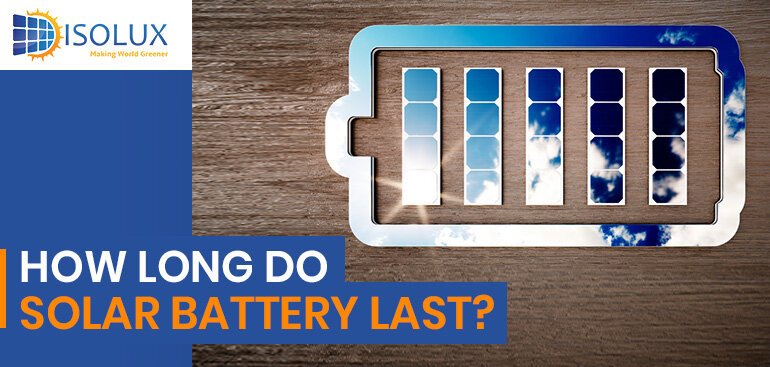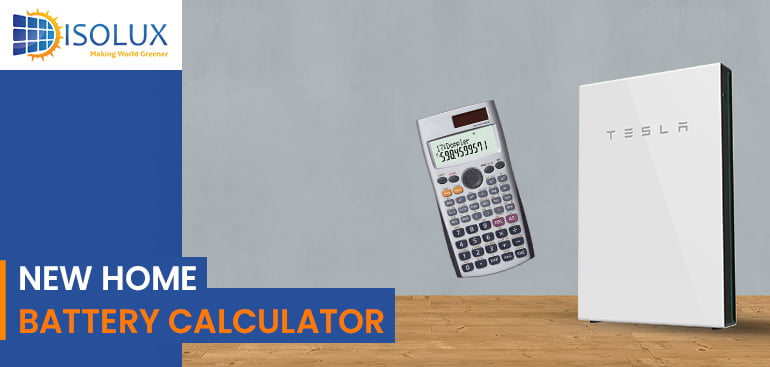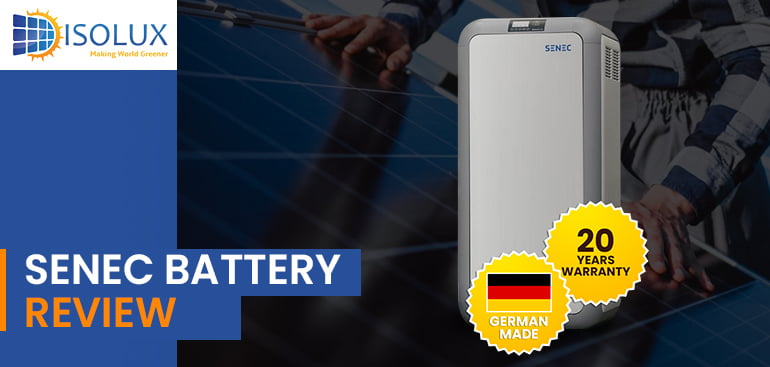The average lifespan of residential solar batteries lasts between five to fifteen years. For instance, gel batteries typically last for about 1100 cycles, lithium-ion phosphate batteries endure around 7000 cycles, and absorbed glass batteries have a lifespan of approximately 600 cycles.
Lithium-ion solar batteries, which are becoming increasingly popular, have a longer lifespan than lead-acid batteries, typically lasting 10-15 years or more. They are also more efficient and have a higher energy density, meaning they can store more energy in a smaller size and weight.
The lifespan of solar batteries is a very essential factor that manufacturers must take into account to ensure that their batteries are reliable and durable, and facilitate expected energy production. The solar battery design should allow the batteries to withstand heat and heat cycles.
Therefore, various manufacturers of batteries for solar energy should have a thorough knowledge of solar batteries. Also, ensure that the proper measures are taken to increase their lifespan. The type of battery should not be forgotten either. The size of the battery for solar energy storage should also allow for a longer life of the battery. Knowing this important information related to solar battery storage Sydney can help residential and commercial users, too.
You can always contact the best solar company in Sydney to get the best advice.
Factors That Affect Solar Batteries Life
1. The Type of Battery You Install
The type of battery for solar energy storage must be anyone out of lead-acid, lithium-ion, Sodium Nickel Chloride, and Flow r Battery.
Of the four options, lithium-ion batteries generally last the longest. These batteries for solar energy also tend to offer the best storage capacity.
2. Solar Battery Maintenance
Proper maintenance is essential for the battery for solar energy storage, especially for lead-acid batteries.
If the batteries are not properly maintained, the terminals and parts can easily deteriorate these batteries which can potentially shorten the battery life.
3. Solar Battery Usage
The lifespan of batteries for solar energy is primarily determined by their usage cycles. Most solar batteries are usually deep-cycle batteries, which allow them to discharge up to 80% of the stored energy before recharging them.
4. Solar Battery Temperature
As the life of the battery for solar energy storage gets affected by extreme temperatures, care should be taken when installing outdoor solar batteries.
To maximize battery life, also make sure that you are using the correct type of battery in the region where you live.
It is because some photovoltaic batteries may not function properly in very hot or very cold weather conditions.
5. Environment in Which Batteries are Stored
Neither a very hot nor a very cold environment is ideal for solar batteries. If you can store batteries in a garage or basement, or an insulated, temperature-controlled part of the building, then your solar batteries can outlast.
Typical Lifespan of Solar Batteries
- Lead-Acid Batteries
- Flooded Lead-Acid: 3-5 years
- Sealed Lead-Acid (AGM and Gel): 4-7 years
- Lithium-Ion Batteries
- NMC (Nickel Manganese Cobalt): 10-15 years
- LFP (Lithium Iron Phosphate): 10-15 years
- Flow Batteries
- Vanadium Redox Flow: 10-20 years
What Warranty Should I Get with My Solar Battery?
When purchasing a solar battery, it’s important to consider the warranty offered by the manufacturer. The warranty should provide protection against defects in materials and workmanship, as well as guarantee the battery’s performance over time.
A typical solar battery warranty includes a certain number of years of coverage for the battery’s capacity, usually between 5 to 15 years, depending on the manufacturer. Some manufacturers also offer a warranty on the battery’s cycle life. It is the number of times it can be charged and discharged before losing its capacity.
It’s important to carefully review the warranty terms and conditions, as well as the exclusions and limitations. Some warranties may only cover certain types of failures or require specific maintenance practices to be followed in order to maintain coverage.
Additionally, it’s a good idea to research the reputation and track record of the manufacturer and their customer service. As this can give you an idea of how they handle warranty claims and support their products over time.
How Long Do Solar Batteries Last in Comparison to Solar Panels?
Solar batteries and solar panels have different lifespans and can last for different lengths of time.
Solar panels are designed to last up to 25-30 years or more with proper maintenance. However, their efficiency may decline over time due to factors such as weathering, dust accumulation, and aging of the materials. The exact lifespan of solar panels can vary depending on the quality of the materials, the manufacturing process, and the environmental conditions in which they are installed.
Solar batteries, on the other hand, have a shorter lifespan than solar panels and typically last between 5-15 years. This lifespan can vary depending on the type of battery, the quality of the materials, and the conditions in which they are used. Factors that can affect the lifespan of solar batteries include temperature, depth of discharge, charging and discharging cycles, and maintenance practices.
It is worth noting that both solar panels and solar batteries require regular maintenance to ensure optimal performance and longevity. Proper maintenance and care can help extend the lifespan of both solar panels and batteries.
Is the Lifespan of a Solar Battery the Most Important Aspect?
The lifespan of a solar battery is an important aspect to consider, but it is not necessarily the most important aspect.
When it comes to solar batteries, there are other important factors to consider in addition to their lifespan. One of the most important factors is the battery’s capacity or energy storage capacity, which refers to the amount of energy the battery can store and deliver. A battery with a higher capacity can store more energy and provide more backup power during periods of low sunlight.
Another important factor to consider is the battery’s efficiency, which refers to how much of the energy it stores can be used. A more efficient battery will be able to provide more usable energy, which can be particularly important for off-grid or backup power applications.
However, these factors, the cost of the battery, and its compatibility with other components of the solar system are also important considerations. It’s important to choose a battery that is compatible with the solar panels, inverter, and other components of the system to ensure optimal performance and efficiency.
How Do I Know When My Solar Batteries Need Replacement?
There are several signs that may indicate that your solar batteries need to be replaced. Here are some of the most common indicators:
Reduced Capacity
Over time, the capacity of a battery may reduce due to aging or wear and tear. If you notice batteries are not storing or delivering as much energy as they used to, then consider replacing them.
Reduced Efficiency
The efficiency of a battery refers to how much of the energy it stores can be used. If you notice that your batteries are not delivering as much usable energy as they used to. It may be a sign that they are no longer as efficient as they once were.
Shorter Lifespan
If your batteries are not lasting as long as they used to, it may be a sign that they are nearing the end of their lifespan. This can be particularly noticeable if you have had the batteries for a long time.
Physical Damage
Physical damage to the batteries, such as cracks or leaks, is a sign that they need to be replaced. Damaged batteries may not be able to hold a charge or may pose a safety risk.
System Errors
Some solar systems have built-in monitoring systems that can alert you to potential issues with your batteries. If you receive an error message related to the batteries. It may be a sign that they need to be replaced.
Tips to Extend Solar Battery Life
- Monitor Battery Health
Use a battery monitoring system to keep track of performance and identify issues early. This helps in taking corrective actions before significant damage occurs.
- Optimize Usage
Avoid fully discharging the battery regularly. Use energy-efficient appliances to reduce the load on the battery.
- Regular Maintenance
For lead-acid batteries, ensure the electrolyte levels are correct and clean terminals to prevent corrosion. Lithium-ion batteries require less maintenance but still benefit from periodic checks.
- Climate Control
Install batteries in a climate-controlled environment to prevent damage from extreme temperatures. Insulated and ventilated battery enclosures can help maintain optimal temperatures.
Wrapping Up
Simply put, your solar battery can last a decade, depending on how you use and maintain it. The type of batteries for the solar energy you use can also be a game-changer. If you go for cheaper batteries, you might not get benefited much from their quality.
Contact Isolux Solar to get an obligation free quote.
Read Next Blog:




